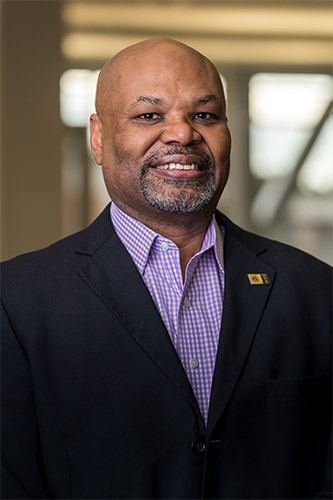University of Utah professor William Smith is one of the top education scholars in the nation as ranked by public influence.

William Smith.
Smith is a jointly appointed professor in the Department of Education, Culture & Society in the College of Education and the Division of Ethnic Studies in the School for Cultural & Social Transformation. He is also the chief executive administrator for Justice, Equity, Diversity and Inclusion at the Hunstman Mental Health Institute.
His ranking, which “spotlights the top 200 education scholars who move ideas from academic journals into the national conversation,” according to the American Enterprise Institute, places him in the top 1% of educational scholars and researchers in the United States.
Find the full list here, which places Smith at #189.
“I am thrilled to see my hard work and dedication recognized with a top 200 ranking among university-based faculty in the United States!” Smith says. “I am an admirer of the exceptional scholarship of the other professors on this list and am excited to be acknowledged with them.”
The Edu-Scholar Public Influence Rankings, released annually by American Enterprise Institute director of education policy studies and Education Week blogger Frederick M. Hess, are based on nine metrics of public impact, including scholarly publication metrics, book publication and mentions in online news, print media, education news and appearances on university syllabi.
“One small way to encourage academics to step into the fray and revisit academic norms is, I think, by doing more to recognize and value those scholars who engage in public discourse,” says Hess. “As I see it, the extraordinary policy scholar excels in five areas: disciplinary scholarship, policy analysis and popular writing, convening and shepherding collaborations, providing incisive media commentary, and speaking in the public square.”
Learn more about the rankings methodology here and find the full top 200 list here.
